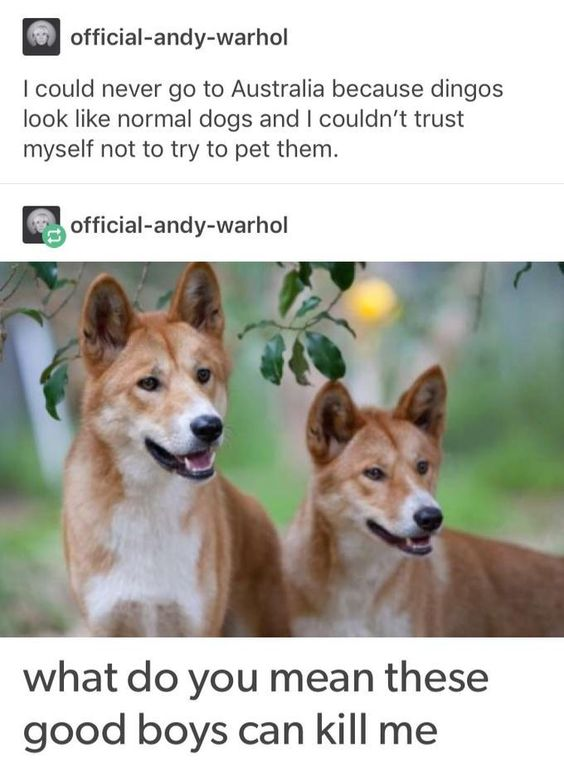view the rest of the comments
Humor
"Laugh-a-Palooza: Unleash Your Inner Chuckle!"
Rules
Read Full Rules Here!
Rule 1: Keep it light-hearted. This community is dedicated to humor and laughter, so let’s keep the tone light and positive.
Rule 2: Respectful Engagement. Keep it civil!
Rule 3: No spamming! AI slop will be considered spam at the discretion of moderators
Rule 4: No explicit or NSFW content.
Rule 5: Stay on topic. Keep your posts relevant to humor-related topics.
Rule 6: Moderators Discretion. The moderators retain the right to remove any content, ban users/bots if deemed necessary.
Please report any violation of rules!
Warning: Strict compliance with all the rules is imperative. Failure to read and adhere to them will not be tolerated. Violations may result in immediate removal of your content and a permanent ban from the community.
We retain the discretion to modify the rules as we deem necessary.

They are not, it's just some breed representation thing, and they certainly look more dingoey than a Jack Russel, but at least in the United States, it's likely to be trace amounts. Source, I own two, but admittedly neither have had any sort of genetic test so I guess my hearsay is as good as yours....I should find out, I honestly wouldn't be surprised if they had up to a quarter dingo somehow.
They actually are a dingo cross breed. The Blue Heeler and The Red Australian Cattle Dog are both mixed with dingo. English breeds were not able to handle Australia and were bred with captured dingos for toughness.
There seems to be some confusion with how a hybrid could breed in this chain.
Cell Division is what causes problems for Hybrid animals reproducing.
If the cell begins dividing and the chromosomes within can not find like pairs the cell stops dividing and will not become an animal.
Dogs and Dingos are close enough that even though not all chromosomes are paired correctly, they can still create a viable animal.
Dingos are wild dogs, they're descendants of Dogs brought to Australia about 4,000 years ago.
No disagreement on viability of the offspring and their subsequent ability to mate further down, only a disagreement about percentage between single digit up to "half" in the current breed (as it exists in the USA). I believe it's notably diluted from the original cross for reasons I stated in my other reply, but I'm curious about my red since she's considerably more dingo-esque than my blue.
Anecdotal evidence is the best evidence, right?
No I just mean in general, the Australian cattle dog was originally created by crossing herding breeds (mostly speckled collies) with the native dingo. The collies couldn't handle the heat so they introduced a breed that was capable of doing so.
If you do a genetics test it'll just show them as being "Australian cattle dog" cause that's what the genetic markers are identified as now.
Right, but they're no longer half dingo after the multitude of generations has passed in whichever pedigree, because for whichever innate temperament traits you might desire, along with the inability to selectively breed for physical ones with a wild dog, you wouldn't take a second generation heeler and cross a dingo back in just to keep the percentage up. I don't honestly know the whole history but it's conceivable that enough of the original breed starters contained sufficient "dingo" to keep the content up.
I thought I had read that one of the various tests...wisdom panel maybe...was providing results indicating wild crosses, including dingo. My thinking was that any significant percentage would show, but time will tell, since we have whichever brand that was, and just need to collect and run the sample.